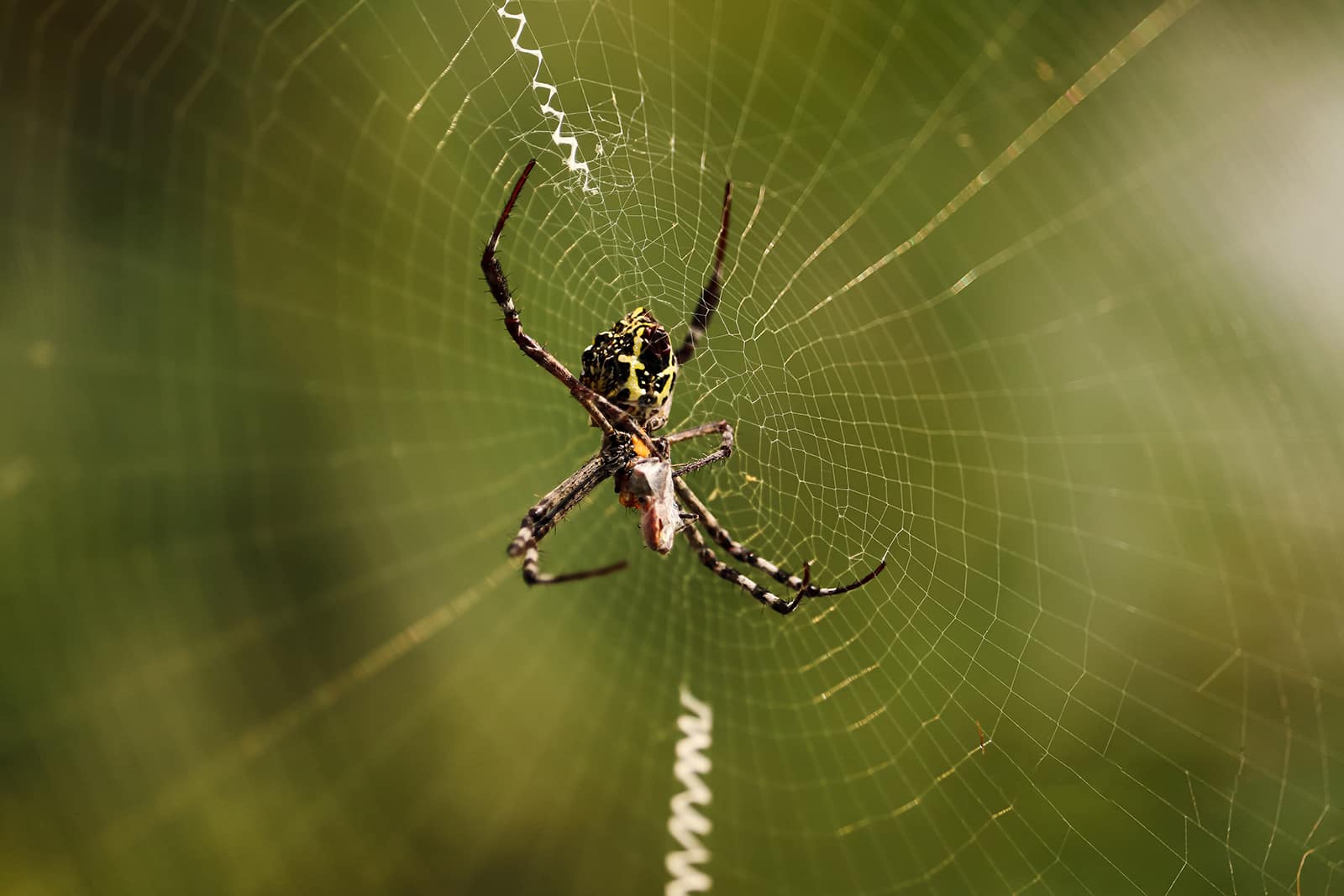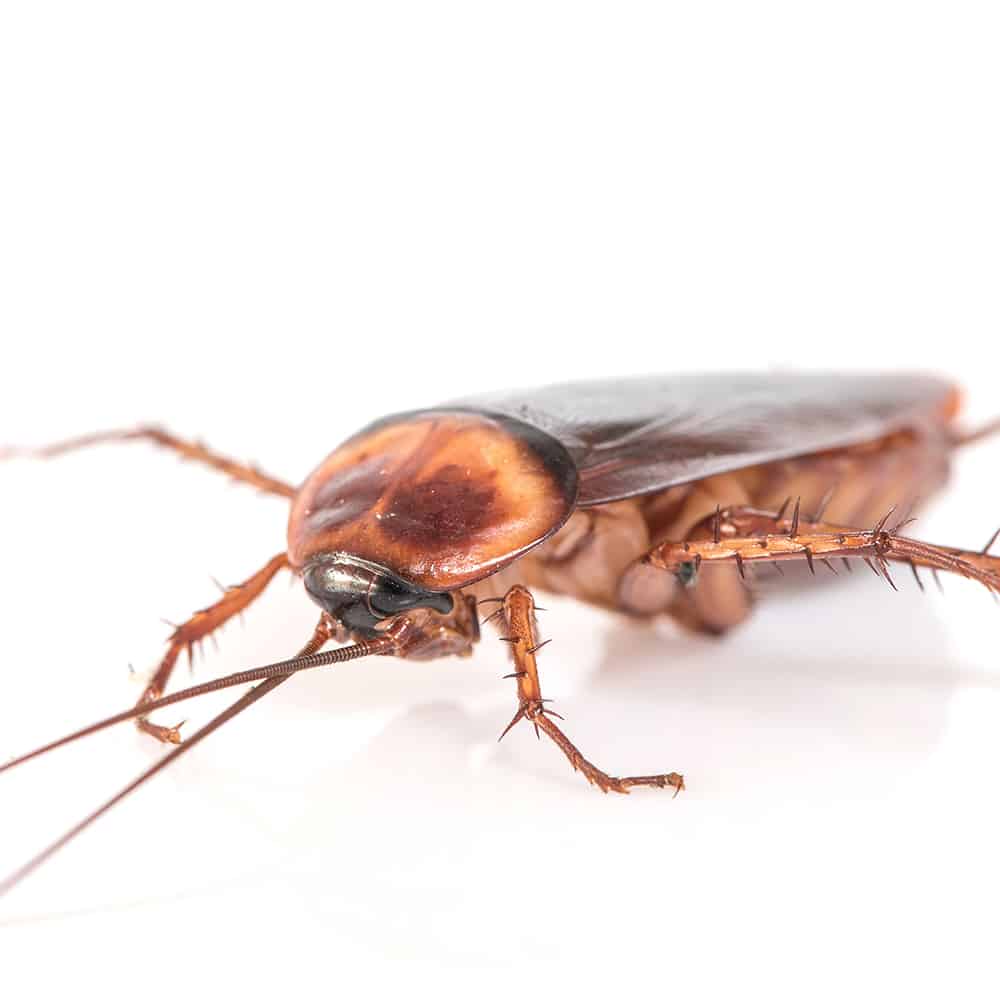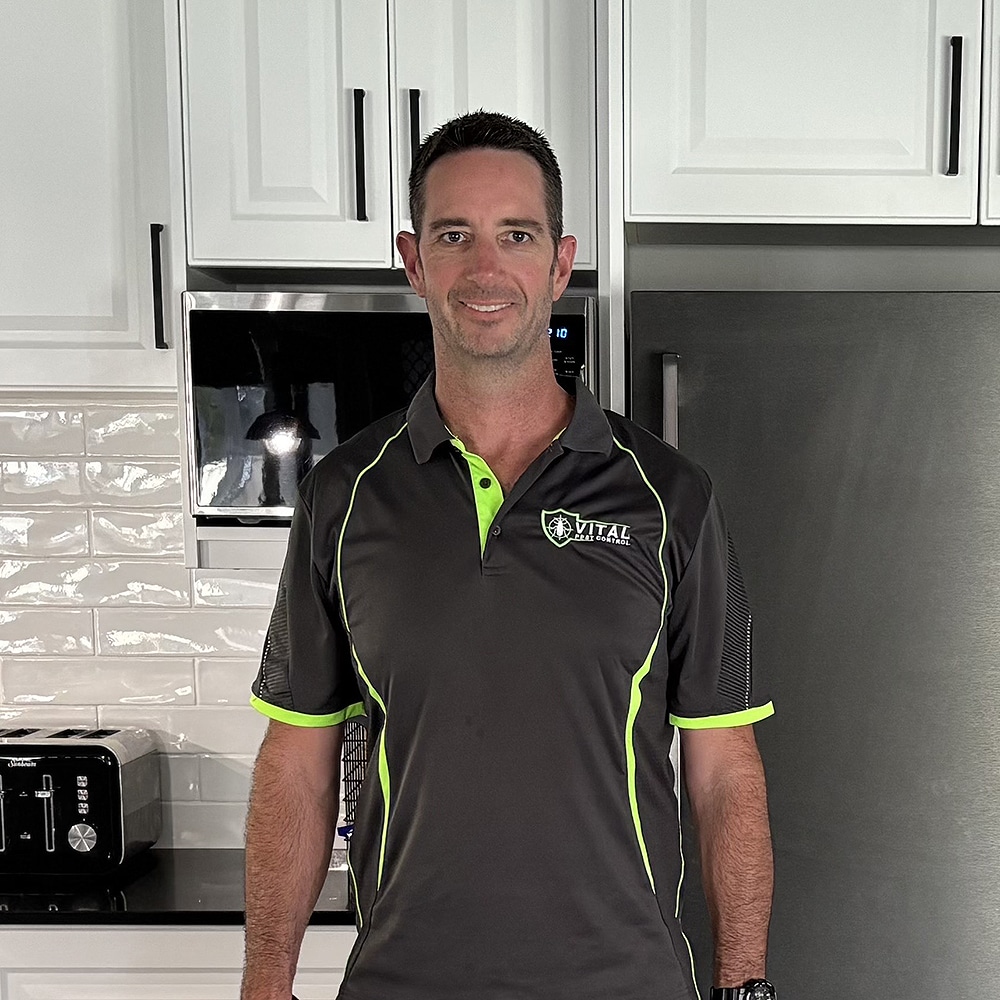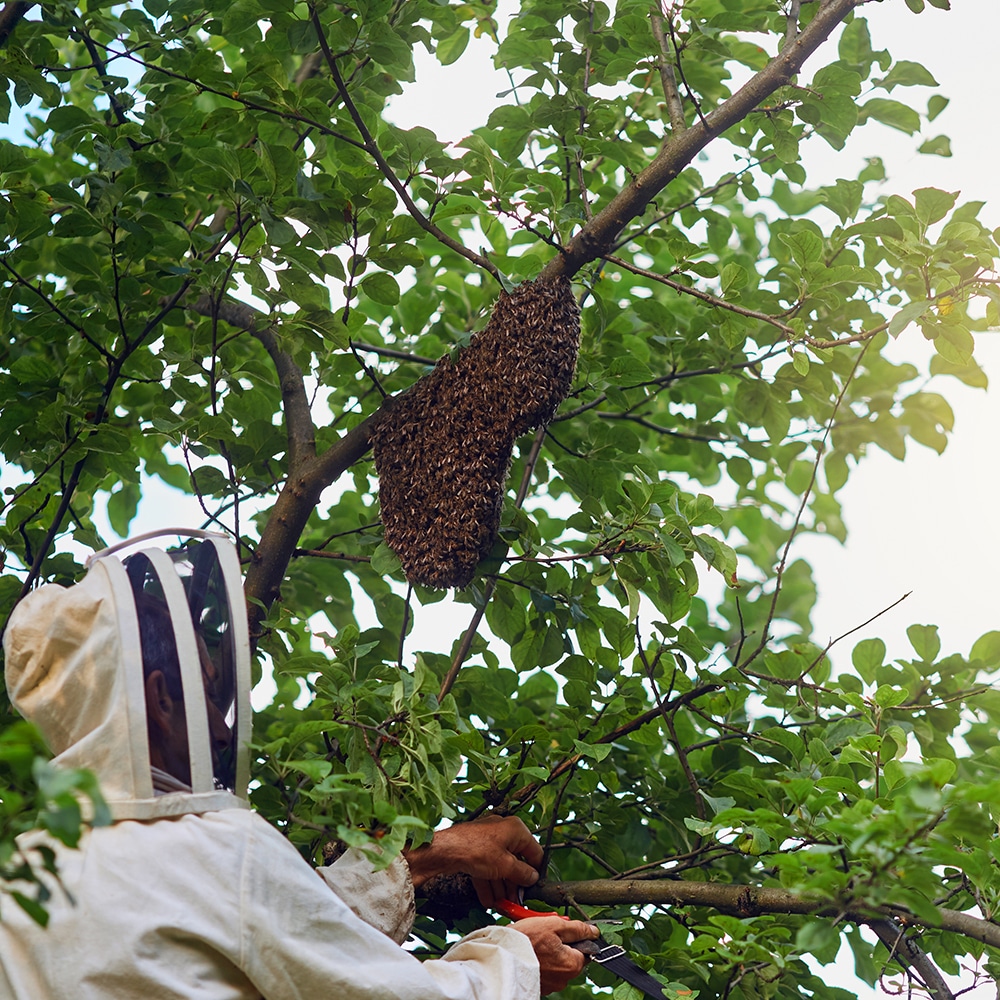
Why Do Spiders Come Back And Why
Why Do Spiders Come Back And Why On The Central Coast NSW. Responsive Proactive Solutions. Detail-focused for lasting results. Call Adam on 0431 222 894
Handling infestations in rental properties is crucial for maintaining a healthy environment. Whether you’re a landlord or a tenant, understanding your role can make a big difference. For those in Central Coast NSW, Vital Pest Control offers reliable solutions. Let’s dive into the key areas to consider.
Landlord vs Tenant Responsibilities
Clear roles help prevent disputes. Typically, landlords handle structural issues, while tenants must maintain cleanliness. This ensures that pest problems are addressed promptly and effectively.
Lease Clauses Regarding Pests
Include specific pest clauses in leases. This clarifies responsibilities and sets expectations. Both parties benefit from understanding these terms from the outset.
Reporting Procedures to Management
Establish a straightforward reporting process. Encourage tenants to report pest issues quickly. Quick action leads to responsive, proactive solutions.
Coordinating Multi-Unit Treatments
Synchronise treatments across units to prevent migration. This approach is both efficient and cost-effective, ensuring comprehensive coverage.
Preventing Cross Contamination
Focus on stopping pests from spreading between units. Effective barriers and regular checks are key to maintaining a pest-free environment.
Shared Laundry Area Guidelines
Implement strict cleanliness standards in shared areas. Regular inspections and maintenance can prevent infestations in these common spaces.
Using Consistent Pest Control Logs
Maintain detailed records. This helps track pest activity and the effectiveness of treatments, ensuring long-lasting results.
Setting Building-Wide Schedules
Organise regular pest control schedules. Consistent attention helps prevent infestations and keeps the property in top shape.
Discover how we can help you today! Contact us through our Contact page for a consultation.

In Central Coast NSW, managing pest infestations in rental properties can be a tricky task. It’s essential for both landlords and tenants to understand their responsibilities to ensure effective pest control. Knowing who is accountable for different aspects of pest management can prevent disputes and maintain a healthy living environment.
Landlord Responsibilities
Landlords must provide a rental property that is safe and habitable. This includes ensuring the property is free from pest infestations at the start of a tenancy. If pests appear due to structural issues, such as gaps in walls or faulty plumbing, landlords must address these problems promptly. Regular property inspections can help landlords identify pest problems early. Engaging a professional pest control service is often necessary to manage infestations effectively.
Tenant Responsibilities
Tenants play a crucial role in pest prevention by maintaining cleanliness and promptly reporting any signs of infestations. This includes disposing of rubbish properly and storing food in sealed containers. If an infestation occurs due to a tenant’s lifestyle choices or negligence, they may be responsible for rectifying the issue. Tenants should communicate with landlords about pest sightings to ensure swift action is taken.
Shared Duties
Both parties benefit from open communication and cooperation. Regular maintenance checks and adherence to lease agreements about pest control can prevent disputes. It’s in the best interest of both landlords and tenants to work together to maintain a pest-free environment, ensuring the property remains a comfortable and healthy place to live.
Lease clauses regarding pests are crucial for both landlords and tenants on the Central Coast NSW. These clauses help define responsibilities and ensure that pest issues are managed effectively. Understanding these clauses can prevent disputes and maintain a healthy living environment.
Landlord Responsibilities
Landlords typically handle pest control at the start of a lease. Ensuring a pest-free property before tenants move in is crucial. Landlords should schedule regular inspections and treatments, especially in pest-prone areas. If a pest problem arises due to structural issues, landlords must act swiftly to resolve it.
Tenant Responsibilities
Tenants must keep the property clean and report any pest issues promptly. Failing to maintain hygiene can result in tenants bearing pest control costs. Tenants should also inform landlords about any signs of infestation early to prevent escalation. This proactive approach can save time and money.
Negotiating Pest Clauses
Negotiating pest clauses in leases can benefit both parties. Clear terms on pest management responsibilities help avoid conflicts. Tenants should ensure clauses are fair, while landlords might include routine pest inspections in the lease. This clarity fosters a good landlord-tenant relationship and ensures timely pest management.
Effectively managing pest control in rental properties on the Central Coast of NSW requires clear reporting procedures to management. Vital Pest Control ensures that every infestation is addressed with precision and speed, safeguarding property value and tenant satisfaction.
Initial Assessment and Documentation
The first step in managing pest problems involves a thorough assessment. Vital Pest Control conducts detailed inspections to identify the type and extent of infestation. Technicians document findings with photos and notes, providing a comprehensive overview for property managers. This initial report serves as the foundation for all subsequent actions.
Action Plan Development
Once the assessment is complete, a strategic action plan is crafted. This plan outlines the recommended treatment methods, timelines, and expected outcomes. The plan is shared with property management to ensure transparency and obtain necessary approvals. Immediate communication helps in swift decision-making, reducing tenant disruption.
Regular Updates and Feedback
Throughout the pest control process, Vital Pest Control maintains open lines of communication. Regular updates keep management informed of progress and any unforeseen challenges. Feedback from tenants is also collected and communicated, ensuring a comprehensive view of the situation and fostering trust between all parties involved.
Final Reporting and Follow-Up
After treatment completion, a final report is generated. This document details the actions taken, results achieved, and any recommendations for future prevention. Management receives this report promptly, allowing for informed decisions on ongoing property maintenance and tenant communication.
Coordinating pest control treatments for multi-unit properties on the Central Coast, NSW, is a crucial task for property managers. Vital Pest Control offers effective solutions to ensure infestations are tackled promptly, maintaining tenant satisfaction and property value. Whether it’s an apartment block or a townhouse complex, organising these treatments requires strategic planning and communication.
Understanding the Unique Needs of Multi-Unit Properties
Each property has its unique challenges when it comes to pest control. Multi-unit buildings often face issues like shared walls and communal areas, which can facilitate the spread of pests. Identifying the specific needs of each property is essential for developing a tailored approach. Regular inspections and preventative measures ensure infestations are spotted early, reducing the risk of widespread problems.
Efficient Communication with Tenants
Clear communication with tenants is vital during pest control treatments. Informing residents of treatment schedules and necessary preparations helps minimise disruption. Providing tenants with information on signs of infestations and preventative measures they can take also supports effective pest management. Keeping an open line of communication fosters cooperation and ensures a smooth process.
Collaborating with Professional Pest Control Services
Partnering with experienced pest control services, like Vital Pest Control, ensures expert handling of infestations. Professionals bring the latest techniques and products, guaranteeing effective treatment. They also offer valuable advice on maintaining pest-free environments. Coordinating with professionals enables property managers to focus on other responsibilities while ensuring thorough pest management.
Preventing cross contamination is crucial in managing pest control for rental properties on the Central Coast NSW. Effective pest control involves more than just treating infestations. It requires a proactive approach to ensure that pests do not spread from one area to another, particularly in multi-unit dwellings where shared spaces can become breeding grounds for unwanted visitors.
Understanding Cross Contamination
Cross contamination in pest control occurs when pests or chemicals move from treated to untreated areas. This not only spreads the infestation but can also pose health risks. Recognising potential pathways such as air ducts, common walls, and shared utilities helps in designing an effective control strategy.
Implementing Physical Barriers
Physical barriers act as a first line of defence against pest movement. Sealing gaps, installing door sweeps, and using mesh screens over vents can significantly reduce the risk of cross contamination. Regular maintenance of these barriers ensures their effectiveness over time.
Utilising Integrated Pest Management
Integrated Pest Management (IPM) combines multiple tactics to minimise pest activity. This approach focuses on prevention through sanitation, proper waste management, and monitoring. By reducing attractants and entry points, IPM plays a vital role in preventing cross contamination.
Educating Tenants and Property Managers
Education is key in controlling infestations and preventing their spread. Informing tenants and property managers about proper waste disposal, reporting sightings, and maintaining cleanliness can significantly aid in keeping pests at bay. Communication ensures everyone plays their part in pest prevention.
Shared laundry areas in rental properties can be hotspots for pest problems. On the Central Coast of NSW, managing these areas is crucial to ensure a pest-free environment. By following some essential guidelines, tenants and landlords can work together to minimise pest infestations in shared laundry spaces.
Regular Cleaning Routine
Maintaining a regular cleaning schedule is key to preventing pests. Encourage tenants to wipe down surfaces and remove lint from dryers after each use. Regularly mop floors and clean behind machines to eliminate hidden food sources and moisture, which attract pests.
Proper Waste Disposal
Ensure rubbish bins in the laundry area are emptied frequently. Use bins with tight-fitting lids to deter pests like rodents and cockroaches. Clear signage can remind tenants to dispose of waste properly, helping to keep the area tidy and pest-free.
Inspect and Seal Entry Points
Regular inspections can identify potential pest entry points. Seal cracks and crevices around windows, doors, and plumbing to prevent pests from entering. Installing door sweeps and screens can also act as barriers against unwanted guests.
Engage Professional Pest Control
Building management should arrange regular pest control inspections by a professional service. This proactive approach helps identify issues early and provides peace of mind for tenants. Professional services can offer tailored pest control solutions specific to Central Coast conditions.
Using consistent pest control logs plays a crucial role in managing infestations in rental properties on the Central Coast NSW. These logs help property managers and tenants keep track of pest control measures, ensuring effective and timely interventions. Keeping detailed records not only aids in addressing current issues but also prevents future infestations.
The Importance of Regular Documentation
Maintaining detailed pest control logs ensures a proactive approach to pest management. Regular documentation helps identify patterns, making it easier to predict and prevent potential infestations. This ongoing record-keeping supports compliance with local regulations and demonstrates a commitment to maintaining a healthy living environment.
Improving Communication and Accountability
Consistent logs facilitate clear communication between landlords, tenants, and pest control professionals. They provide a transparent account of actions taken, enhancing trust and accountability. When everyone involved understands the steps being taken, it ensures that pest control measures are effective and timely.
Enhancing Property Value and Tenant Satisfaction
By using pest control logs, property managers can maintain the property’s condition, ultimately preserving its value. Tenants appreciate a pest-free environment, increasing their satisfaction and likelihood of renewing leases. A well-documented pest management system can differentiate a property, making it more attractive to potential renters.
Effectively managing pest control in rental properties on the Central Coast NSW requires strategic scheduling. A building-wide schedule not only simplifies management for landlords but also ensures tenants enjoy a pest-free environment. Coordinated pest control efforts are critical to prevent infestations from spreading between units.
Assessing the Property’s Needs
Begin with a thorough property assessment to identify potential pest issues. Look at common infestation sites such as kitchens, bathrooms, and basements. Take note of any structural vulnerabilities like cracks or gaps that pests might exploit. This initial evaluation helps tailor a pest control schedule that addresses specific concerns.
Coordinating with Tenants
Communication with tenants is vital when setting up pest control schedules. Notify them well in advance about upcoming treatments. Provide clear instructions on any preparations they need to make, such as removing food items or vacating their units. This cooperation ensures smooth pest control operations and tenant satisfaction.
Regular Inspection and Maintenance
Consistent inspections play a crucial role in maintaining a pest-free environment. Set up regular checks to catch any signs of pest activity early. Incorporate this into the building-wide schedule to ensure ongoing maintenance. Regular inspections help in adapting pest control strategies as needed.
Effective communication with neighbours is crucial when dealing with pest infestations in rental properties on the Central Coast NSW. It not only ensures a coordinated approach to pest control but also fosters a community spirit that can prevent future issues.
Open Dialogue for Shared Concerns
Start by having an open conversation with your neighbours about any signs of pests they might have noticed. This can often reveal a larger problem that affects multiple properties. Sharing observations like strange noises or sightings can help pinpoint the source and spread of the infestation. This dialogue ensures everyone is on the same page, making it easier to tackle the problem collectively.
Coordinated Pest Control Efforts
Once aware of a pest issue, coordinate efforts to manage it effectively. Engaging a professional service like Vital Pest Control can be more cost-effective when shared among neighbours. A unified approach not only reduces individual costs but also increases the chances of successfully eliminating the infestation, ensuring it doesn’t return.
Maintain Neighbourly Relations
Addressing pest problems can sometimes lead to tensions if one party feels more burdened. Keep communication respectful and solution-focused. Regular updates and discussions about progress can help maintain positive relationships, ensuring a harmonious living environment. This proactive approach can prevent misunderstandings and encourage ongoing cooperation.
Handling pest issues in rental properties on the Central Coast NSW requires careful attention to legal obligations. Both landlords and tenants have specific duties to ensure a safe and habitable living environment. Understanding these responsibilities helps prevent conflicts and promotes effective pest management.
Landlord Responsibilities
Landlords must provide a property free from infestations at the start of a tenancy. It is their duty to maintain the premises, ensuring it remains pest-free. If pests appear due to structural issues or lack of maintenance, landlords need to address these problems promptly. Hiring professional pest control services is often necessary to ensure thorough treatment.
Tenant Duties
Tenants, on the other hand, must maintain cleanliness to prevent infestations. This includes proper waste disposal and avoiding behaviours that attract pests. If tenants cause an infestation through negligence, they might bear the cost of pest control. Reporting any signs of infestations to the landlord promptly is also crucial.
Shared Responsibilities
Both parties need to work together for effective pest control. Open communication helps identify issues early. Tenants should report problems quickly, while landlords must respond promptly. This collaboration ensures both the property and its inhabitants remain safe and comfortable.
Dealing with severe or repeated pest outbreaks in rental properties on the Central Coast NSW can be daunting. Vital Pest Control offers expert solutions tailored to these challenging situations, ensuring both property protection and tenant satisfaction. Persistent infestations require strategic approaches to prevent property damage and maintain a healthy living environment.
Identifying Persistent Infestations
Understanding the root cause of a persistent infestation is crucial. Vital Pest Control conducts detailed inspections to identify the pest species and entry points. By assessing the severity and source, they can tailor treatments to effectively target the problem. This proactive approach helps in breaking the cycle of infestation, ensuring long-term solutions rather than temporary fixes.
Implementing Targeted Treatments
Once the pests are identified, Vital Pest Control employs targeted treatments that focus on eradication and prevention. Using environmentally friendly methods, they ensure minimal disruption to tenants. The use of advanced techniques and products guarantees effective control, minimising the chance of future outbreaks. This approach not only manages the current situation but also safeguards against future risks.
Regular Monitoring and Maintenance
To ensure the effectiveness of treatments, regular monitoring and maintenance are essential. Vital Pest Control schedules follow-up visits to monitor pest activity and adjust strategies as needed. This continuous attention helps in maintaining pest-free environments, providing peace of mind for both landlords and tenants. Regular updates and reports keep all parties informed, fostering transparency and trust.
Living on the Central Coast of NSW offers stunning views and a relaxed lifestyle, but it can also mean dealing with unwanted pests. For new tenants, understanding the basics of pest control is crucial to maintain a comfortable living environment. Awareness and early action can prevent small issues from becoming major infestations.
Recognise Common Pests
Different pests thrive in the Central Coast’s climate. Cockroaches, ants, and rodents are common nuisances. Knowing what to watch for helps in early detection. Droppings, nests, and unusual noises are signs that pests may have taken up residence. Prompt reporting to your landlord can ensure timely intervention.
Maintain Cleanliness
Keeping your rental property clean is a simple yet effective way to deter pests. Regularly disposing of rubbish, wiping surfaces, and storing food in sealed containers can prevent infestations. A tidy home offers fewer hiding spots for pests, reducing their appeal to move in.
Check Lease Agreements
Understanding your lease agreement regarding pest control responsibilities is vital. Some landlords may cover pest control costs, while others might expect tenants to manage minor issues. Clarifying these details ensures you know who to contact when pests appear, avoiding unnecessary delays.
By staying informed and proactive, tenants on the Central Coast can enjoy their rental properties pest-free. A combination of vigilance and proper communication with landlords ensures a comfortable living experience.
Dealing with pest issues in rental properties on the Central Coast NSW involves more than just the removal of unwanted guests. For companies like Vital Pest Control, mitigating liability concerns is crucial to ensure a smooth operation and satisfied clients. Understanding the unique challenges in this region can help in effectively managing these concerns.
Clear Communication with Landlords and Tenants
Vital Pest Control must maintain open lines of communication with both landlords and tenants. This ensures everyone understands their responsibilities regarding pest management. Clear agreements prevent misunderstandings that could lead to liability issues. By explaining the steps involved and potential outcomes, both parties can collaborate more effectively, reducing the risk of disputes.
Regular Inspections and Documentation
Conducting regular inspections and keeping detailed records aids in managing liability. Documenting pest activity, treatment plans, and outcomes provides a clear trail of evidence. This transparency protects Vital Pest Control if disputes arise over the effectiveness or necessity of treatments, offering a robust defence against potential claims.
Compliance with Local Regulations
Adhering to local laws and regulations is essential for Vital Pest Control to mitigate liability. The Central Coast has specific guidelines for pest management in rental properties. Staying informed about these rules and ensuring all practices comply minimises the risk of legal issues, safeguarding both the company and its clients.
Maintaining common areas in rental properties is crucial for effective pest control, particularly on the Central Coast of NSW. These spaces often attract pests due to shared usage and varied cleaning standards. Ensuring hygienic conditions helps prevent infestations, thereby reducing the need for intensive pest management interventions.
Regular Cleaning Routines
Implementing consistent cleaning schedules is vital in maintaining hygiene. Regularly vacuuming carpets and mopping floors in hallways and lounges deter pests by removing crumbs and spills. Cleaners should focus on corners and under furniture where dirt often accumulates. A clean environment helps eliminate food sources that attract pests.
Proper Waste Management
Effective waste management in common areas plays a significant role in pest prevention. Ensure bins are emptied frequently and have tight-fitting lids to prevent pests from accessing waste. Placing bins away from entry points reduces the chance of pests entering the building. Clear guidelines for residents on waste disposal help maintain a pest-free environment.
Adequate Ventilation
Good ventilation in common areas is essential to deter pests and maintain hygiene. Proper airflow reduces moisture buildup, which attracts pests like cockroaches and mould. Ensure windows and vents are functioning correctly. Regular checks for leaks or damp spots also minimise pest-friendly conditions.
When dealing with infestations in rental properties on the Central Coast of NSW, it’s crucial to know when to escalate to professional services like Vital Pest Control. While minor issues might seem manageable, professional intervention ensures safety and thoroughness.
Recognising the Need for Professional Services
Identifying when to call in professionals is essential. If tenants report recurring pest sightings despite DIY efforts, it’s a sign that the infestation might be more extensive than it appears. Pests like termites or rodents can cause structural damage, making professional intervention vital. Vital Pest Control offers expertise and tools that can address the root of the problem.
Benefits of Using Vital Pest Control
Engaging Vital Pest Control offers peace of mind. Their team provides comprehensive solutions tailored to the specific pest issue at hand. They have the experience and equipment to handle everything from termite infestations to rodent invasions. This not only protects the property but also maintains tenant satisfaction by ensuring a pest-free environment.
Ensuring Long-Term Solutions
Beyond immediate eradication, Vital Pest Control focuses on long-term solutions. They implement preventative measures, reducing the chances of future infestations. Regular inspections and maintenance keep properties protected, safeguarding both the landlord’s investment and the tenant’s comfort.
Please leave your details in the form and we will call you back the same day.
So that we can process your enquire efficiently please leave as many details as possible and upload any relevant images. (.jpg and .png format)

Why Do Spiders Come Back And Why On The Central Coast NSW. Responsive Proactive Solutions. Detail-focused for lasting results. Call Adam on 0431 222 894

Building a Long Term Residential Pest Protection Plan For Home Owners On The Central Coast NSW. Responsive Proactive Solutions. Detail-focused for lasting results. Call Adam on 0431 222 894

How to Protect Your Home from Wasp Infestations On The Central Coast NSW. Responsive Proactive Solutions. Detail-focused for lasting results. Call Adam on 0431 222 894